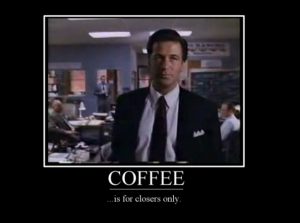
Selling technology to technology startups is an adventure. Imagine this; you’re selling cutting-edge technology to technologists trying to disrupt the cutting-edge technology you’re selling them. Wow. I find this exciting because there’s always an opportunity to learn something new and discover a different or more strategic way of solving complex problems. So how exactly should you approach selling to these technology startups?
One thing I discovered about selling to startups is they move fast, so you have to move faster. As a salesperson, you need to define what “faster” means to you and your organization. If you feel your organization or team isn’t moving fast enough, then you need to be the catalyst that disrupts the inertia by exemplifying speed and results. If the internal process is taking too long, find new ways for it to be streamlined and share it with the different stakeholders within your organization. If your extended team has a “can’t do” attitude, don’t stop until you find someone with a “can do” attitude willing to partner with you to accelerate success for your customer.
If the only thing constant in business is change, the only thing not constant is time. Time keeps moving whether you’re standing, walking, jogging, or sprinting. When next you’re selling technology to a technology startup, make sure you’re sprinting even if they may be walking or jogging. And if they’re sprinting, get some lighter shoes and sprint faster!
Happy Selling! I’d leave you with these parting words…
“Every morning in Africa, a gazelle wakes up, it knows it must outrun the fastest lion or it will be killed. Every morning in Africa, a lion wakes up. It knows it must run faster than the slowest gazelle, or it will starve. It doesn’t matter whether you’re the lion or a gazelle-when the sun comes up, you’d better be running.” – Christopher McDougall



 Don’t worry, I’ll wait…
Don’t worry, I’ll wait… That said, Veteran C-suite execs understand #2, because this is where a conversation/dialogue starts to establish whether a solution is worth evaluating.
That said, Veteran C-suite execs understand #2, because this is where a conversation/dialogue starts to establish whether a solution is worth evaluating.

